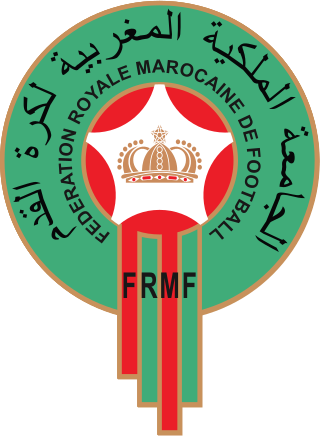
The Algeciras Conference of 1906 took place in Algeciras, Spain, and lasted from 16 January to 7 April. The purpose of the conference was to find a solution to the First Moroccan Crisis of 1905 between France and Germany, which arose as Germany responded to France's effort to establish a protectorate over the independent state of Morocco. Germany was not trying to stop French expansion. Its goal was to enhance its own international prestige, and it failed badly. The result was a much closer relationship between France and Britain that strengthened the Entente Cordiale since both London and Paris were increasingly suspicious and distrustful of Berlin. An even more momentous consequence was the heightened sense of frustration and readiness for war in Germany that spread beyond the political elite to much of the press and most of the political parties except for the Liberals and Social Democrats on the left.

The Agadir Crisis, Agadir Incident, or Second Moroccan Crisis was a brief crisis sparked by the deployment of a substantial force of French troops in the interior of Morocco in April 1911 and the deployment of the German gunboat SMS Panther to Agadir, a Moroccan Atlantic port. Germany did not object to France's expansion but wanted territorial compensation for itself. Berlin threatened warfare, sent a gunboat, and stirred up German nationalists. Negotiations between Berlin and Paris resolved the crisis on 4 November 1911: France took over Morocco as a protectorate in exchange for territorial concessions to German Cameroon from the French Congo.

Bernhard Heinrich Karl Martin, Prince of Bülow was a German statesman who served as the chancellor of the German Empire and minister-president of Prussia from 1900 to 1909. A fervent supporter of Weltpolitik, Bülow devoted his chancellorship to transforming Germany into a global power. Despite presiding over sustained economic growth and major technological advancement, his government's foreign policy did much to antagonize France and Great Britain, which contributed significantly to Germany's defeat in the First World War.

The Morocco national football team represents Morocco in men's international football, and is controlled by the Royal Moroccan Football Federation, the governing body for football in Morocco.

Mustapha Hadji is a Moroccan football coach and former player. He was named the 50th greatest African player of all time by the African football expert Ed Dove.
Richard Bordeaux Parker was an American diplomat, who was as a Foreign Service Officer, and an expert on the Middle East. Parker served as Ambassador to Algeria, Lebanon and Morocco.

During World War II, the Spanish State under Francisco Franco espoused neutrality as its official wartime policy. This neutrality wavered at times, and "strict neutrality" gave way to "non-belligerence" after the Fall of France in June 1940. Franco wrote to Adolf Hitler offering to join the war on 19 June 1940 in exchange for help building Spain's colonial empire. Later in the same year Franco met with Hitler in Hendaye to discuss Spain's possible accession to the Axis Powers. The meeting went nowhere, but Franco did help the Axis—whose members Italy and Germany had supported him during the Spanish Civil War (1936–1939)—in various ways.
Morocco–Pakistan relations have traditionally been strong and cordial, since their establishment in the 1950s, soon after Pakistan's independence from the United Kingdom. Morocco maintains an embassy in Islamabad, whilst Pakistan maintains one in Rabat. Both countries are members of the Organisation of Islamic Cooperation, Group of 77 and Non-Aligned Movement.

The Anglo-Moroccan alliance was established at the end of the 16th century and the early 17th century between the kingdoms of England and Morocco. Commercial agreements had been reached by Queen Elizabeth I of England and the Moroccan Sultan Ahmad al-Mansur on the basis of a common enmity to Philip II of Spain. The arms trade dominated the exchange, and numerous attempts at direct military collaboration were also made.

France–Morocco relations are bilateral relations between Morocco and France. They are part of the France–Africa relations.

India–Morocco relations are the bilateral ties between Morocco and India. Morocco has an embassy in New Delhi, and Consulates in Mumbai and Kolkata. India operates an embassy in Rabat. Both nations are part of the Non-Aligned Movement.

Diplomatic relations between Australia and Morocco were established in 1976. Morocco has had an embassy in Canberra since 2004 and the Australian Embassy in Rabat was established in May 2017, upgrading the existing Austrade office in Rabat. Previously the Australian Embassy in Paris was accredited to Morocco since 1978.
The Apostolic Nunciature to Morocco is the diplomatic mission of the Holy See to Morocco. The Apostolic Nuncio to Morocco is an ecclesiastical office of the Catholic Church in Morocco, with the rank of an ambassador. The nuncio serves both as the ambassador of the Holy See to the State of Libya and as delegate and point-of-contact between the Catholic hierarchy in Morocco and the pope.

The Embassy of the Philippines in Rabat is the diplomatic mission of the Republic of the Philippines to the Kingdom of Morocco. It is currently located in the Souissi neighborhood of southern Rabat, near the Finnish, Norwegian and Russian embassies. Although the current embassy dates from 2019, the Philippines maintained a previous resident embassy in Morocco from 1979 to 1986, and again from 1990 to 1993.

Germany–Morocco relations date back to the 19th century. The German Foreign Office describes Morocco as a "central partner of the European Union and Germany in North Africa," and Germany is an important trading partner for Morocco. In the past, however, relations have not always been entirely free of tension.






















